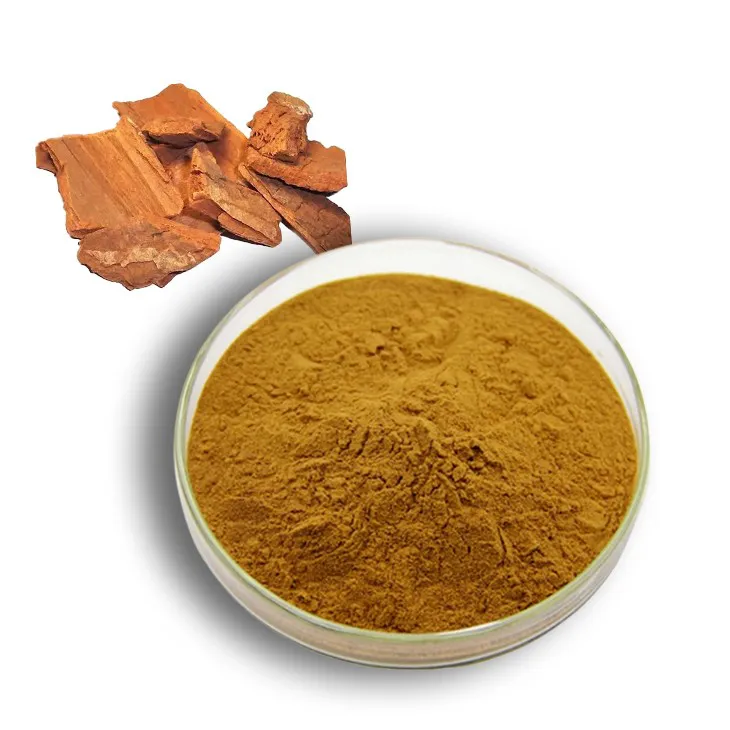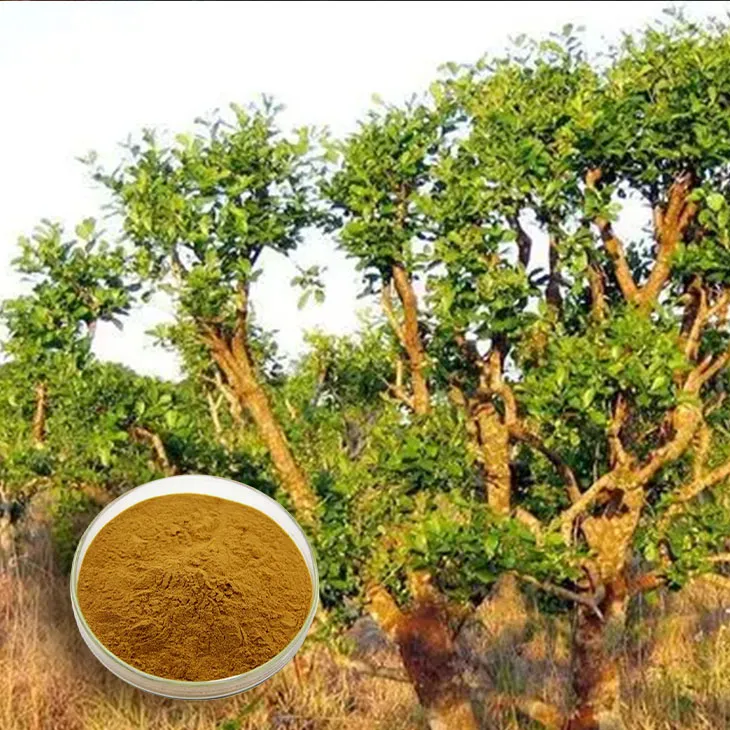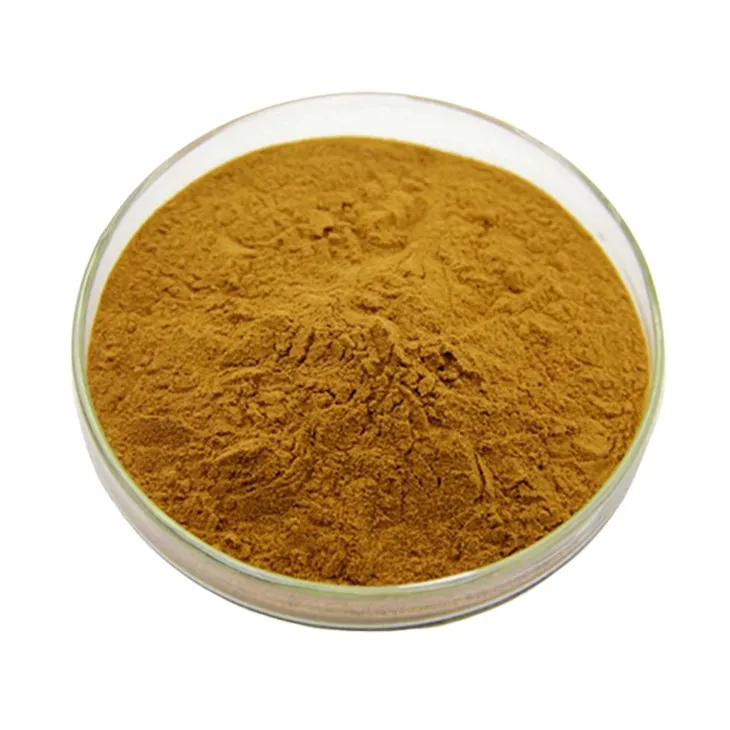- 0086-571-85302990
- sales@greenskybio.com
Yohimbine Bark Extract - Chinese Manufacturer, Supplier, Factory.
2024-12-10

Introduction
Yohimbe bark extract is a natural product that has gained significant attention in various industries around the world. China has emerged as a key player in the production, supply, and manufacturing of this valuable extract. With its advanced facilities, comprehensive services, and adherence to international standards, Chinese entities are making a substantial impact on the global yohimbe bark extract market.

Production Facilities in China
China is home to a vast network of production facilities dedicated to yohimbe bark extract. These facilities are equipped with state - of - the - art machinery and technology, which enables efficient and high - quality production.
Advanced Equipment
The use of modern equipment in Chinese factories ensures precision in the extraction process. For example, advanced extraction machines are capable of isolating the active compounds in yohimbe bark with a high degree of accuracy. This not only maximizes the yield but also maintains the purity of the extract.
Technological Expertise
Chinese manufacturers have also developed significant technological expertise in the production of yohimbe bark extract. They are constantly researching and innovating to improve the extraction methods. This includes exploring new solvent systems, optimizing extraction parameters such as temperature and pressure, and developing post - extraction purification techniques.

Forms of Yohimbe Bark Extract Produced in China
Chinese factories are able to produce yohimbe bark extract in different forms to meet the diverse needs of customers.
Powder Form
The powder form of yohimbe bark extract is highly popular. It is convenient for various applications, such as in the formulation of dietary supplements. Chinese manufacturers can control the particle size and consistency of the powder, ensuring its suitability for different manufacturing processes. For instance, in the production of capsules or tablets, a fine and evenly - sized powder is essential for accurate dosing and proper formation.
Liquid Form
Liquid yohimbe bark extract also has its own set of advantages. It can be easily incorporated into liquid - based products, such as tinctures or energy drinks. Chinese suppliers are proficient in producing high - quality liquid extracts, maintaining the stability and bioactivity of the extract in the liquid medium. They use appropriate stabilizers and preservatives to ensure a long shelf - life and consistent quality.

Services Offered by Chinese Suppliers
Chinese suppliers of yohimbe bark extract are committed to providing comprehensive services to their clients.
High - Quality Product Offering
Quality is a top priority for Chinese suppliers. They source high - quality yohimbe bark from reliable sources and implement strict quality control measures during the extraction process. This includes testing for the presence of contaminants, verifying the potency of the active compounds, and ensuring compliance with relevant standards. By providing high - quality yohimbe bark extract, they build trust with their customers and gain a competitive edge in the global market.
Product Customization
One of the notable services offered by Chinese suppliers is product customization. They understand that different customers may have specific requirements for the yohimbe bark extract. For example, some customers may need a higher concentration of the active ingredient for research purposes, while others may require a lower concentration for consumer - friendly products. Chinese suppliers can adjust the concentration of the extract accordingly. They can also customize other aspects, such as the packaging size and type, to meet the unique needs of each client.
Timely Delivery
Timely delivery is crucial in the business of yohimbe bark extract. Chinese suppliers have established efficient logistics and supply chain management systems. They work closely with shipping companies and other partners to ensure that the products are delivered to customers on time. This reliability in delivery helps customers plan their production schedules and avoid any potential disruptions in their operations.
After - Sales Support
Chinese suppliers also provide excellent after - sales support. They are available to answer any questions or concerns that customers may have regarding the yohimbe bark extract. In case of any issues with the product, they are quick to respond and offer solutions. This includes providing technical advice on product usage, handling of any quality - related complaints, and assisting with product returns or exchanges if necessary.

Adherence to International Standards
The manufacturing process of yohimbe bark extract in China adheres to international standards, which is a significant factor in its global success.
Safety Regulations
Chinese factories follow strict safety regulations in the production of yohimbe bark extract. This includes ensuring the safety of workers during the extraction process, as well as the safety of the final product. For example, they use appropriate safety equipment and procedures to handle potentially hazardous chemicals used in the extraction. The final product is also tested for safety, ensuring that it does not pose any risks to consumers when used as intended.
Quality Standards
In terms of quality, Chinese manufacturers comply with international quality standards such as Good Manufacturing Practice (GMP). GMP guidelines cover various aspects of production, including facility design, equipment maintenance, personnel training, and quality control. By adhering to these standards, Chinese suppliers can produce yohimbe bark extract of consistent quality, which is highly valued by customers around the world.
Meeting Global Demand
China's large - scale production capacity plays a crucial role in meeting the growing global demand for yohimbe bark extract.
Scalability of Production
Chinese manufacturers have the ability to scale up their production quickly in response to increased market demand. Their existing infrastructure and production capabilities allow them to increase the quantity of yohimbe bark extract produced without sacrificing quality. This scalability is an advantage in the global market, where demand can fluctuate due to various factors such as changes in consumer trends or new research findings.
Contribution to the Global Market
By meeting the global demand for yohimbe bark extract, Chinese manufacturers, suppliers, and factories are making a significant contribution to the international market. They are not only providing a valuable natural product but also promoting its use in different sectors. This includes the pharmaceutical industry, where yohimbe bark extract may have potential therapeutic applications, as well as the nutraceutical and cosmeceutical industries, where it can be used for its various beneficial properties.
Conclusion
In conclusion, China's role as a manufacturer, supplier, and factory of yohimbe bark extract is highly prominent. With its advanced production facilities, comprehensive services, adherence to international standards, and large - scale production capacity, Chinese entities are well - positioned to meet the global demand for this valuable natural extract. As the market for yohimbe bark extract continues to grow, China is likely to maintain its important position and further contribute to the development and utilization of this product in the international arena.
FAQ:
Q1: What forms of yohimbe bark extract can Chinese factories produce?
Chinese factories are able to produce yohimbe bark extract in different forms such as powder or liquid to meet the diverse needs of customers.
Q2: How do Chinese suppliers assist clients with yohimbe bark extract?
Chinese suppliers not only offer high - quality yohimbe bark extract but also assist clients with product customization. For example, they can adjust the concentration of the extract according to specific requirements. Additionally, they ensure timely delivery and provide excellent after - sales support.
Q3: What kind of technology do Chinese factories use for yohimbe bark extract production?
Chinese factories are well - equipped with state - of - the - art machinery and technology for the production of yohimbe bark extract. The extraction process is carefully monitored to maintain the integrity of the extract.
Q4: Do Chinese manufacturers of yohimbe bark extract follow international standards?
Yes, the manufacturing process in China for yohimbe bark extract adheres to international standards. Stringent safety and quality regulations are followed, giving customers the confidence to use products sourced from Chinese factories.
Q5: Why is China a significant player in the international market for yohimbe bark extract?
China has a vast network of facilities dedicated to the production of yohimbe bark extract. With a large - scale production capacity, Chinese manufacturers are able to meet the growing global demand for this natural extract, making it a significant player in the international market.
Related literature
- The Production and Quality Control of Yohimbe Bark Extract in China"
- "Yohimbe Bark Extract: China's Manufacturing and Global Supply"
- "China's Role in Yohimbe Bark Extract Industry: A Comprehensive Review"
- ▶ Hesperidin
- ▶ Citrus Bioflavonoids
- ▶ Plant Extract
- ▶ lycopene
- ▶ Diosmin
- ▶ Grape seed extract
- ▶ Sea buckthorn Juice Powder
- ▶ Fruit Juice Powder
- ▶ Hops Extract
- ▶ Artichoke Extract
- ▶ Mushroom extract
- ▶ Astaxanthin
- ▶ Green Tea Extract
- ▶ Curcumin
- ▶ Horse Chestnut Extract
- ▶ Other Product
- ▶ Boswellia Serrata Extract
- ▶ Resveratrol
- ▶ Marigold Extract
- ▶ Grape Leaf Extract
- ▶ New Product
- ▶ Aminolevulinic acid
- ▶ Cranberry Extract
- ▶ Red Yeast Rice
- ▶ Red Wine Extract
-
Boswellia Serrata Extract
2024-12-10
-
Maca Extract
2024-12-10
-
Jujube Extract
2024-12-10
-
Beetroot juice Powder
2024-12-10
-
Dandelion Leaf Extract
2024-12-10
-
Cocoa Extract
2024-12-10
-
Yellow Pine Extract
2024-12-10
-
Artichoke Extract
2024-12-10
-
Pueraria Lobata Extract
2024-12-10
-
Purple Sweet Potato Extract
2024-12-10





















